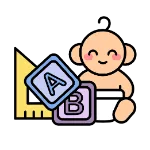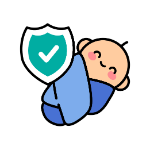
Parenting
Helicopter Parenting And How It Affects Your Child's Development
10 min | Updated on 30-03-2023 by HappyPreggie
Becoming a parent is no simple task. When you first bring your tiny newborn home, it can certainly feel like your main purpose is to protect them from any real or perceived harm that may come their way. The need to keep your child happy and safe may be part of the reason this often-mocked parenting style remains relevant until today: helicopter parenting. Parents often believe that staying close to their child is the best way to raise a happy and successful child, but being a helicopter parent can sometimes backfire and do more damage than good to a child’s development.
(Image credits to Adobe Stock)
What Is Helicopter Parenting?
We, as parents, want our children to be happy and do well for themselves. However, some parents take 'being supportive' to another level and hover around their children like a helicopter - hence the term ‘helicopter parenting’.
Helicopter parenting means getting involved in a child's life in a way that is over-controlling, overprotecting, and over-perfecting. Helicopter parents often stay very close and rarely out of reach, pay extremely close attention to their child and rush over immediately to prevent any harm - physically and psychologically, to the point of enmeshment. This is where the line for personal boundaries gets blurry and is diffused, leading to a loss of self-dependent development. In other words, helicopter parenting (also called cosseting) is being 'hyper-involved in a child's life'.
Characteristics of A Helicopter Parent
Most identify helicopter parents by their overprotective tendencies. From infancy to university, they tend to be overly involved in their child's life to the point where their activities and interests become second in priority. These parents may even put their child's personal goals and career aspirations on hold, all in favour of what they believe their child needs.
Helicopter parents also tend to over-schedule their kids, believing it gives them a competitive edge in everything from education to sports to music. Some helicopter parents may even try to meddle with their child's friendship and social standing to create various opportunities for their child.
Helicopter parents don't see anything wrong with their parenting style, and instead, they are proud to be very involved in their child's life. They see their actions as a way to help their child succeed while also ensuring their safety.
Why Do Parents Hover?
(Image credits to iStock)
Helicopter parents can develop from various factors, such as:
- Fear of dire consequences
Parents might fear a low grade, rejection from the sports team, or a botched job interview—especially if they feel they could've done something to help. However, these consequences that parents are trying to prevent can be great life lessons for their children to learn from.
- Feelings of anxiety
Concerns about the economy, the job market, and the world, in general, can push parents to control their child's life in an attempt to protect them from getting hurt or disappointed
- Overcompensation
Adults who were unloved, neglected or ignored as children tend to overcompensate with their children. Excessive attention and monitoring are sometimes an attempt to remedy the parents' deficiency in their upbringing.
- Peer pressure from other parents
When parents see other over-involved parents, it can trigger a similar response, pressuring them to do the same. They may feel guilty and believe they are bad parents for not being as involved.
Am I A Helicopter Parent?
Unless it is pointed out, no parent would know they are helicopter parenting. So, let's take a look at the signs of helicopter parenting and see if you are one:
- You prevent your child from exploring and stretching their abilities
- You constantly shadow your child, always playing with and directing their behaviour and allowing them no alone time.
- You ensure your child has a particular teacher or coach in school and select your child's friends and activities.
- You monitor and control their homework, providing unnecessary assistance for homework and school projects.
- You do for your child what they can do for themselves.
- You do their academic work or get overly involved.
- You don't allow them to tackle their problems.
- You prevent them from making age-appropriate choices.
Negative Effects of Helicopter Parents on Child's Development
(Image credits to HuffPost)
A lot of helicopter parents start with good intentions. However, the more they get involved, the harder it is to differentiate the boundaries. There are many helicopter parenting effects, which include:
- Decreased self-esteem
Children with helicopter parents will believe their parents have little to no trust in them when they are prevented from doing things on their own, which may lead to a lack of confidence.
- Undeveloped coping skills
If a parent is always helping or cleaning up their child's mess - or preventing an issue from happening - their child will never be able to learn from their mistakes, and they may also be unable to cope with loss, disappointment, and failure. They may also feel less capable when dealing with life stresses by themselves.
- Sense of entitlement
When parents handle their child's social, academic, and athletic lives all the time, the child may feel accustomed to always having their way and start to develop a sense of entitlement. They may grow up believing the world will bend backward for them, resulting in a rude awakening later on.
- Undeveloped life skills
Preventing your child from doing little things like tying shoelaces, washing the dishes, packing lunches, and monitoring school progress - even after your child is mentally and physically capable of doing it can cause them to be unable to master even the simplest life skills.
Positive Aspects of Helicopter Parenting
While the term helicopter parenting is often derogatory, helicopter parenting is not always so bad. These parents are the ones to usually arrive on time, ensure their child's homework is done, and be prepared for their activities. Moreover, they can guarantee their child's safety because they always keep them in sight or are always up-to-date with their location. Other benefits of helicopter parenting style are:
Helicopter parents know who their child befriends and how they are doing in school. If the child encounters any issues, like dropping grades, illnesses, bullying issues, or mental health concerns, these parents will work endlessly to ensure it is solved.
Helicopter parents also tend to join school functions such as the PIBG/PTA meetings. For this reason, schools, teachers, and coaches can benefit from the time, energy, and money they devote to making the school, the classroom, or the team the best it can be for their child.
How To Stop Helicopter Parenting
(Image credits to The Singapore Women’s Weekly)
It is essential to give your child room to grow, learn new skills, and learn from mistakes on their own. Loosening the control can be difficult, but remember that it doesn't make you any less of a loving, involved parent. You can show your child that you're always there without solving all of their problems for them.
Here's how you can break free and encourage your child to be more independent:
- Think of long-term effects. Your child may be unable to develop crucial life skills if you are overly involved and interfere with all they do.
- Let your child do the small things like tying their shoes, cleaning their room, and picking out clothes when they are old enough and can make decisions themselves.
- Let them make age-appropriate decisions for themselves, such as allowing your child to choose their preferred extracurricular activity or hobbies. When they are older, let them choose what courses to take.
- When your child has a disagreement or conflicts with the people around them, don't interfere and solve it for them. Instead, teach them the skills needed to resolve the dispute independently.
- Allow your child to fail and make mistakes. No matter how difficult it is, it can help them cope with disappointments.
- Teach them necessary life skills, so they don't rely on others, such as cooking, cleaning, laundry, face-to-face interaction, and how to talk with adults.
There is no right or wrong way to parent a child, and different parenting styles work better than others for each family and children. Helicopter parenting, while it may seem bad, has its benefits if done moderately. To pick the best parenting style, parents should consider the impact and values behind multiple parenting strategies, think about the person or the adult you want them to become, and then base the parenting styles around this outcome.
If you are trying out parenting styles for your children, read our articles on Common Parenting Tactics That Aren't Good For Your Kid and How To Handle Upset Toddlers to make your journey easier.
Join the largest support network for family health and well-being. Ready to get started?
Get started
















